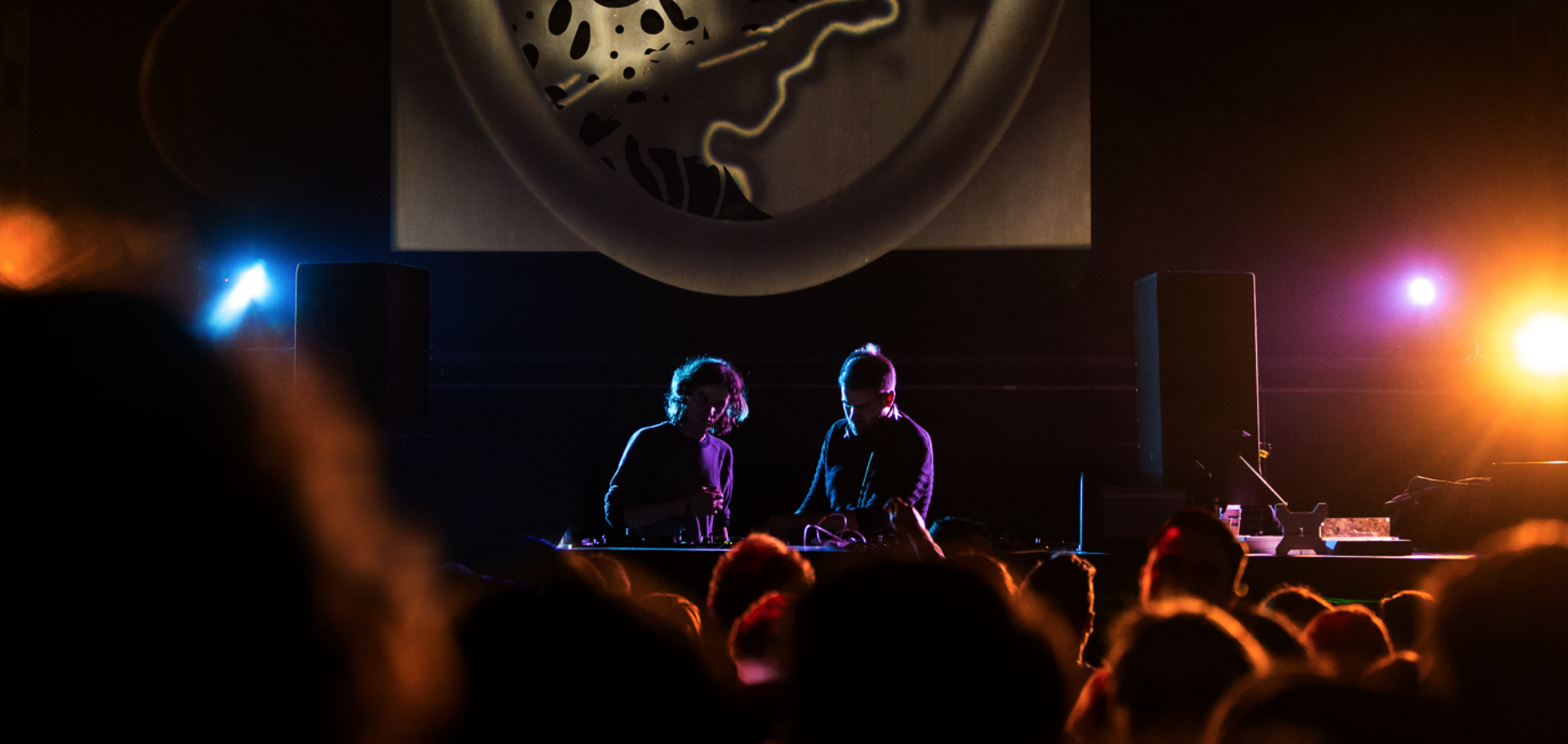Download a Trippy New Set from Khidja
The Romanian duo recorded the set exclusively for XLR8R.

Andrei Rusu and Florentin Tudor’s Khidja project (pronounced “Khadeeja”) started in the 10th grade, in the backyard of their German High School. They found the name “Khidja” by stumbling upon an old record by the legendary band Mandrill, which included a track with that same name. If you listen to Mandrill’s “Khidja,” you will find yourself embarking on an adventure where genres intertwine, Latin meets prog and funk meets jazz. This fusion of styles is “what Khidja is all about,” they say, and over time their sound is continuously changing and transforming—jumping from era to era and genre to genre.
While collecting and absorbing music from all over the world for many years they eventually found interest in the roots of their home country. Romania was under Turkish occupation around 1500AD and the Ottoman Empire left its mark with a lot of its musical influences becoming deeply rooted in the local culture. You’ll hear it in traditional “lautareasca” music and in the omnipresent “gypsy music,” too. Khidja’s sound was also inspired by this, the local Bucharest scene and the various Turkish disco influences they heard a few years back when Turkish DJs like Baris K started promoting this sound. It all went into a mix of middle-eastern electronic music with a nod towards organic sounds and synthesizers combined with cult instruments like setar, ney or saz, and grungy guitars that are reminiscent of the Krautrock era.
Exciting things are from the duo today. Their music has been released via Hivern Discs, Malka Tuti, and [Emotional] Especial, while they’re DJing with increasing frequency. “Imagine all the elements that described their sound in the past, enforced by more electronics and more drums,” they say of the sets.”Part of the production stays true to the middle-eastern vibe they focused on in the past and part of it explores new areas closer to house, techno, new wave and industrial.” In more private, intimate parties their focus turns to showing off rare gems—diggers’ delights, spreading across all genres of music, from soundtracks to exotica and industrial and rare disco.
And that brings us to their set today.
When and where was the mix recorded?
The mix was done in Ableton at the studio, we didn’t have where to go to record it on players.
Could you tell us about the idea behind it?
We tried to give you a bit of everything that can happen during a night out with Khidja, mostly about moving around and letting that freak out.
How did you choose the records in it?
It was some of our favorite stuff that we played at parties during the last month or so, some digging discoveries, some unreleased tracks, and some classics.
How does the mix compare to one of your club mixes?
It’s much more dynamic live; we try to look at the crowd as much as we can, at home it’s tougher to not get carried away and fall into a hole.
What have you got planned for 2017?
Earlier in 2017, our EP Impossible Holliday was released on John Talabot’s label Hivern. In between this EP and our next single Microb that just came out on Malka Tuti, we kept very busy with remixing. One that we are very proud of is already out on Lurid Music, and another one that we are also very proud of is coming out in August on Dark Entries. As for the rest of 2017, we plan on working with some amazing musicians for our next EPs on Malka Tuti and another cool label that’s been around since the ’80s, while finishing different remixes.
Khidja performed alongside Blawan, Hunee, Mike Servito at this year’s Dancity Festival, a tremendous event in Foligno, a two-hour train ride outside of Rome into the hills of Umbria. More information can be found here. They are also soon set to perform at this year’s Atlas Electronic Music & Arts Festival in Morocco, with more information available here.

